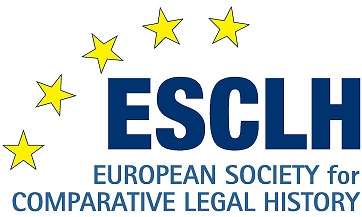(image source: Wikimedia Commons)
GRACEH 2025 offers a platform to explore the complex interplay between legal systems and the diverse social fabric of Europe across different historical spaces and periods. Europe’s rich cultural, ethnic, and religious diversity has shaped numerous legal traditions, often oscillating between integration and exclusion. The conference seeks to examine the interaction between legal structures and social diversity as well as the role of law in promoting or suppressing diversity from a historical perspective. In this context, diversity can be understood as the variety of identities, social groups and cultural backgrounds. It includes among other aspects, differences in terms of encompassing gender, ethnicity, religion, sexual orientation, social class and DisAbilities.
Gustav Klimt's Faculty Painting “Jurisprudence”, provides a visual basis for the conference theme and symbolizes the complex relationship between law, power and human destiny. The painting does not emphasize the clear order and rationality of law, but rather its ambivalence, and its often unforeseen consequences. This multifaceted depiction of law opens up the discourse about the sanctioning of diversity and the use of law as an instrument to enforce social norms or to exclude certain groups.
Proposed contributions could, for example, deal with the legal challenges and developments in the area of minority rights. Migration and the legal measures of integration, as well as DisAbilities and LGBTIQ* are further central topics. Moreover, questions could revolve around diversity of the law itself, for example in the context of colonialism, multinormativity or around spaces of “lawlessness” which offer insights into normative practices and opportunities outside of the legal system.
Possible topics include but are not limited to:
1. Diversity in Law
Throughout history, the law has categorized certain people and behaviors as “normal” and others as “deviant”. Such categorizations are often the result of social and cultural norms embedded in the legal system. What categorizations can be found within the law? What was considered the norm in different times and places and how are certain people or behaviors categorized as “deviant”? In what way were certain people treated differently?
2. Diversity of Law
Multinormativity and legal pluralism are central themes in the study of the diversity of law. The divergence of canonical and secular law or the exchange between colonial law and European societies offer insights into the complex interactions of different legal systems. In what way for example was marriage regulated differently in coexisting legal systems? How did certain principles of law which shaped institutions (eg. the judiciary and the legislative body) in different ways interact or counteract each other?
3. Sanctioning Diversity through Law
The sanctioning of “deviant” behavior by the means of the law can be found in almost all historical areas and periods. What can diversity mean in the context of the history of criminality? In what way does the ban of abortion illustrate how law has been used to enforce social norms and inequalities? How were homosexuality and transsexuality regulated differently throughout European history?
4. Enabling Diversity through Law
Anti-discrimination laws, the legalization of homosexuality, same-sex marriage and the recognition of the third gender as well as minority rights, gender equality and the legal recognition of religious communities are examples of legal reforms that have contributed to greater equality and diversity in many European societies. However, the distinction between legal and social equality shows that while laws can contribute to the active promotion of equality, social equality is often more difficult to achieve. How are these dynamics for example reflected in the women's suffrage, the women's movements and the fight against social inequality?
5. Diversity of Making and Administrating Law
The role of legislators and judges and their influence on the administration of law is of great importance. Reform processes and the abuse of law, such as in National Socialist law, as well as the politicization of law illustrate the dynamics of legislation. Who were the people that made and administrated the law in different historical times and areas? What were their agendas?
6. Places of “Lawlessness”
Places of “lawlessness” offer fascinating insights into alternative forms of social organization and the possibilities of diversity at the margins of state and institutional control. In such spaces, different cultural, ethnic and social groups were often able to develop in a way not possible in more regulated areas of societies. To what extent did private spaces, far from public and legal control, enable individual lifestyles and identities or become places of oppression and violence? How did Monasteries, religious communities, the high sea or pubs and taverns offer space for lifestyles that deviated from the social norm?
The conference is open to graduate students at all stages of research. We invite graduate students working on different topics and periods on a national, international, transnational, or comparative scale. We encourage contributions with novel and diverse perspectives and interdisciplinary approaches. GRACEH 2025 warmly welcomes participants to join in person. While we offer a limited hybrid model, we strive to foster an engaging in-person experience.
DATES AND INFORMATION
Please send abstracts up to 300 words and a scientific CV (max 100 words) to:
graceh2025.hkw@univie.ac.at by January 6th 2025. Participants will receive a notification of acceptance by February 6th 2025. Final papers (up to 2.000 words) are due March 17th 2025.
We particularly encourage submissions from those who have yet to present their work at conferences or are from underrepresented regions and/or institutions. We hope to be able to support travel and/or accommodation for a limited number of presenters without access to institutional funding. Participants should cover their accommodation and travel through their home institutions if possible.
If you have questions, you can get in touch with the organizational team here: graceh2025.hkw@univie.ac.at.
More information here.












.png)





